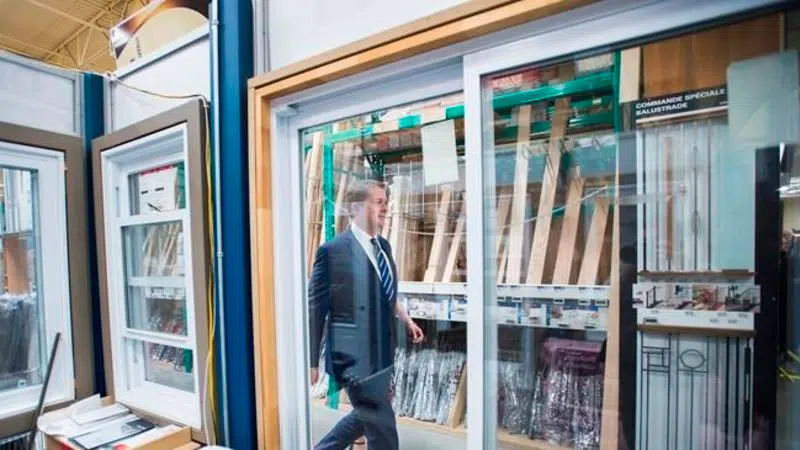
Conservatives highlight home-renovation credit as part of climate plan
JONQUIERE, Que. — Conservative Leader Andrew Scheer used a campaign stop in Quebec on Wednesday to promote his green plan, which he says is the most realistic way for Canada to reach its targets for reducing greenhouse-gas emissions.
“I think young people are seeing more and more evidence that the carbon tax isn’t working and if they want real action on the environment, they are turning away from the Liberal party,” Scheer said at a hardware store in Jonquiere, north of Quebec City.
Scheer unveiled his plan last June, and Wednesday’s discussion re-announced one facet of it — a two-year tax credit he says will help make Canadian homes more environmentally friendly. The 20-per-cent refundable tax credit could be claimed by anyone who spent between $1,000 and $20,000 on energy-saving home renovations, saving a Canadian family up to $3,800 each year of the program.
That could include installing high-quality insulation and high-efficiency furnaces, replacing doors and windows, installing solar panels and upgrading ventilation, heating and cooling systems in an effort to cut energy use.


